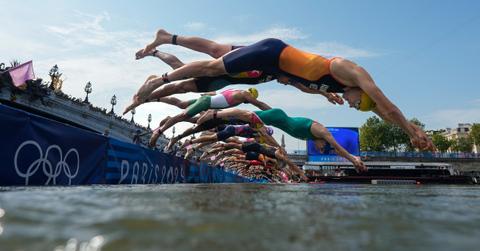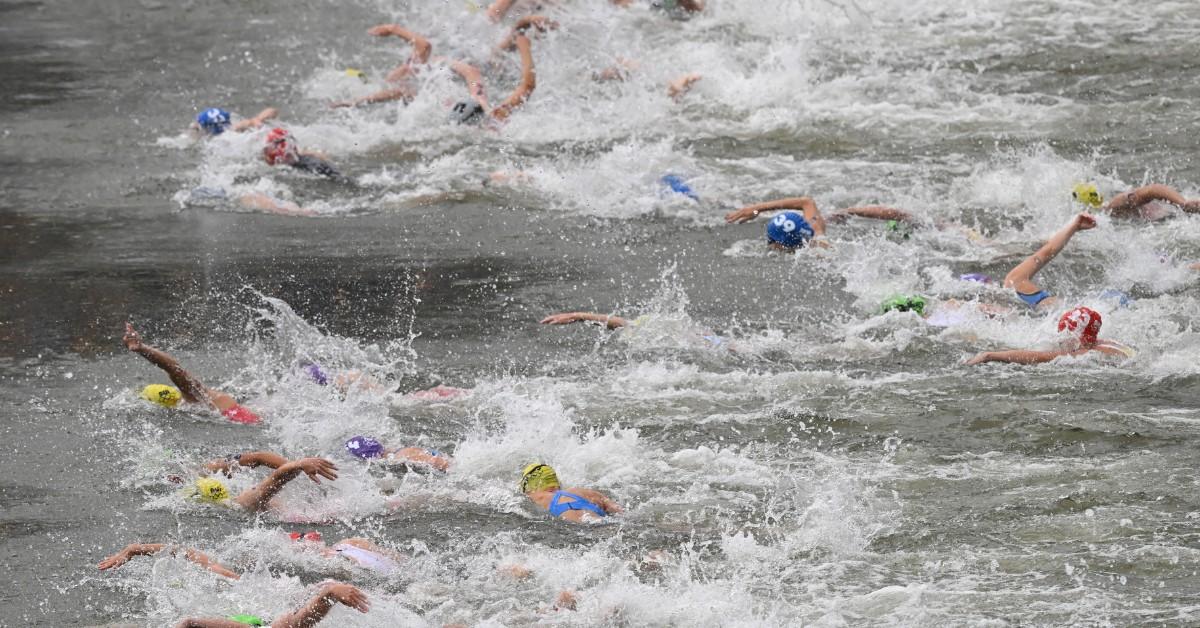Paris Officials Fought to Clean the Seine Ahead of the Olympics With Mixed Success
The water of the Seine left a bad taste in some swimmers' mouths — in more ways than one.
Updated Aug. 1 2024, 4:26 p.m. ET

The summer of 2024, spectators were glued to their TV waiting to see if Olympic swimmers would be able to compete in the full triathlon as planned, performing the swimming portion of the competition in the once filthy Seine river in Paris. Despite years of effort and more than a billion dollars in investments in the project, things still weren't looking good as the competition approached.
In the end, officials reduced pollution levels in the Seine enough for the triathlon competition to continue as planned in the river, something that many swimmers are now complaining about after having a literal taste of the experience. Continue reading to learn more about what went down when Olympians hit the water during the race, including how the river achieved its polluted state in the first place.

Did the athletes swim in the Seine? Here's what they had to say about the water.
In 2024, people were allowed to swim in the Seine for the first time in more than 100 years. Of course, you had to be one of the world's best athletes to participate in the history-making moment, like those who competed during the July 31st water race. According to Today, the men's and women's divisions were permitted to use the river as part of the triathlon, a decision that was up in the air until just a few hours before the race began.
E. coli levels had spiked in the water, exceeding the minimums set by World Triathlon, which oversees the sport and sets safety standards. While many swimmers gave it their all as they swam through the river, not everyone was happy about what the Seine gave back. New Zealand swimmer Ainsley Thorpe told The Wall Street Journal that the water didn't taste "great," noting that it was a little bit "brown."
Brown isn't exactly the descriptor you want to hear knowing that raw sewage has been behind the Seine's most recent troubles, causing E. coli levels to jump. That's something South African swimmer Jamie Riddle said would likely cause digestive upset in the not-too-distant future, according to Today. "I’m definitely going to be visiting the bathroom later, I swallowed gallons and gallons of water, so that’s gonna be a fun post-race party."
Not all the swimmers were disgusted by the location of the contest. Cassandre Beaugrand, the winner of the woman's triathlon, noted that she had swum in worse water than the Seine, offering a different perspective on the competition.
How did they clean the Seine?
France invested more than a billion dollars and nearly ten years into their cleanup efforts, according to The Guardian, which ranged from filtering stations to wastewater management.
Most of the Seine's problem stemmed from centuries of using the waterway as a dumping ground, both on purpose, as the ships that sailed through the city dumped their waste freely into the water, and accidentally, as outdated infrastructure caused raw sewage from surrounding homes to enter the river during heavy rains.
Officials worked to keep heavy rains from flowing into the river, so they created a nearby basin for excess water to run into, bypassing the Seine altogether. Of course, that idea wasn't foolproof, and excessive rainfall caused the basin to overflow, once again introducing pollutants into the river and putting the 2024 Paris Olympics triathlon in danger.
Fortunately, officials reduced the E. coli levels back to an acceptable number in time for the games to go on. Whether or not that ends up being good news for those like Riddle, who will likely spend some of their time in Paris enjoying the city's bathrooms, remains to be seen.